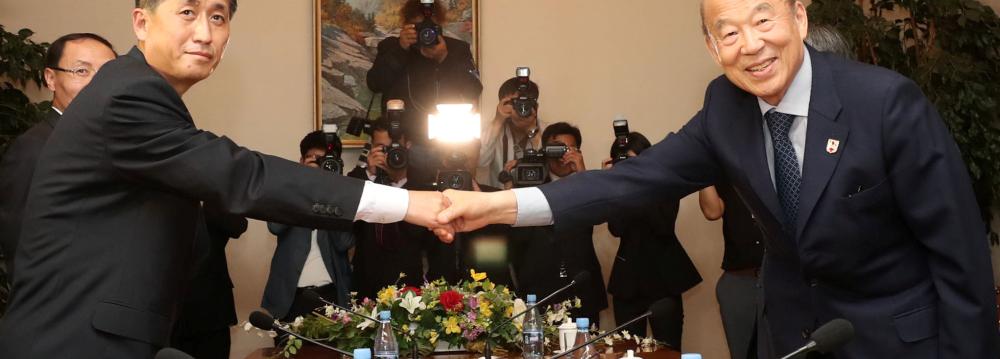Officials from North and South Korea have met in the North’s Mount Kumgang to discuss reunions for families separated by the 1950-1953 Korean War, South Korean media reported, as diplomatic ties between the rivals continued to warm.
The talks, held on the North’s scenic east coast, were part of the agreement reached at April’s Inter-Korean summit between North Korean leader Kim Jong-un and South Korean President Moon Jae-in, Al Jazeera reported.
The two leaders agreed to hold family reunions on August 15, which is marked as National Liberation Day in both countries. The last time reunions were held was in October 2015.
The South Korean delegation on Friday was led by Park Kyung-seo, head of the Korean Red Cross, and North Korea was led by Pak Yong-il, vice chairman of the Committee for the Peaceful Reunification of the Fatherland.
High Hopes
South Korea is hoping the talks will make possible regular contact between families long divided by the border, and broadcaster KBS reported that Seoul’s delegation was planning to propose postal contact and hometown visits as potential measures.
Park, head of the South’s delegation, called for each side to work together to make the meeting a success by holding the talks “from a humanitarian perspective.”
According to South Korea’s Yonhap news agency, the number of South Koreans seeking to meet their loved ones in the North totaled 132,124 as of end-May, of which only about 57,000 remain alive. An estimated 86% of those individuals are in their 70s and older.
One of the challenges in the reunification process is the confirmation of the whereabouts of the lost families in North Korea, an issue which requires close cooperation with Pyongyang.
According to the Korean unification ministry, an overwhelming number of the separated families do not know if and where their loved ones are living in the North.
Since the reunification agreement in 2000, a total of 20 face-to-face family reunions have been held involving 19,800 people from both sides of the border, according to Yonhap.
North and South Korea remain in a technical state of war since 1953, when a ceasefire came into force.


